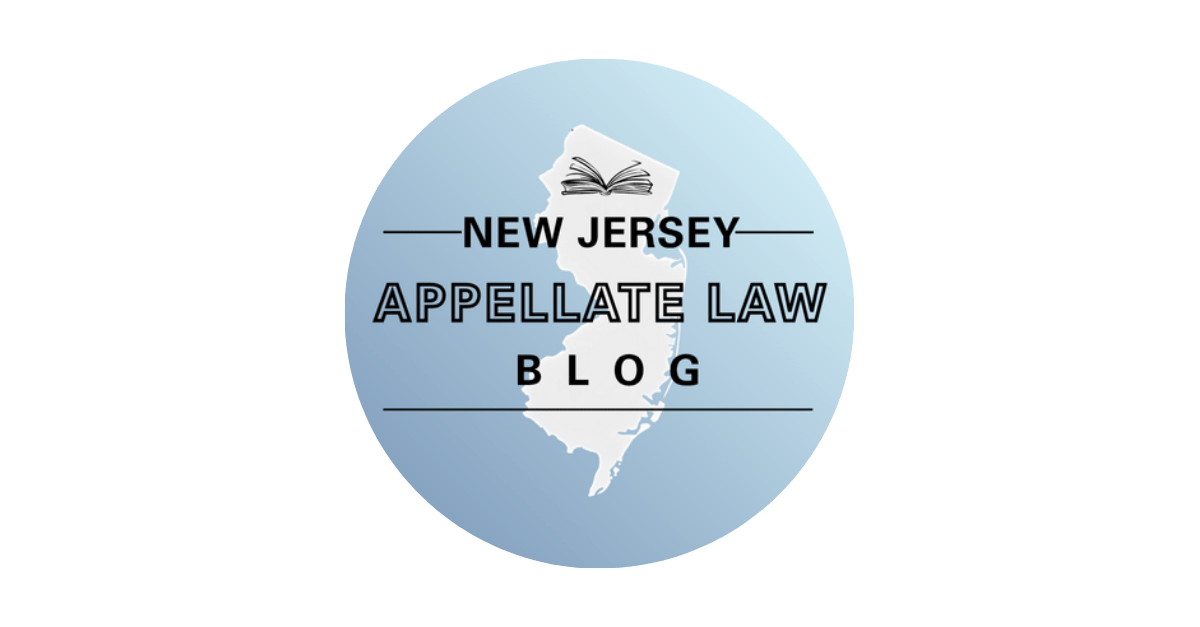The weather has been chilly this week, but the Appellate Division has been heating things up. That court issued published opinions today and on the preceding two days. Here are summaries of those decisions.
State v. Keogh, ___ N.J. Super. ___ (App. Div. 2025). This opinion by Judge Rose today addressed “the first element of third-degree endangering an injured victim, N.J.S.A. 2C:12-1.2(a), as applied to the conduct of third parties who allegedly aid or abet another person after that person injures the victim.” Defendants were alleged to have aided their son after he shot a friend and left him for dead. In particular, the State charged that defendants failed to call 911 to report the situation. The Law Division held that the endangering statute required defendants to have aided or abetted in the infliction of injuries, and that after-the-fact that conduct did not constitute a violation of that statute. Applying de novo review, Judge Rose quoted the Model Jury Charge on this subject and affirmed. “[W]e hold a third party cannot be held liable under N.J.S.A. 2C:12-1.2(a), unless the third party ‘knowingly solicited, aided, encouraged, purposely attempted or knowingly agreed to aid another person in causing bodily injury to the victim’ as reflected in the pertinent model jury charge.”
Lahoud v. Anthony & Sylvan Corp., ___ N.J. Super. ___ (App. Div. 2025). Judge Firko began her opinion on this appeal by stating that the case “presents a novel issue: is an alternative dispute resolution (ADR) provision enforceable if the party who drafted the contract reserves the right to file certain claims in court while the other party does not.” The case arose out of defendant’s alleged failure to comply with its contract to install a swimming pool at plaintiff’s beachfront home. Plaintiff sued, defendant moved to dismiss the case in favor of arbitration, and plaintiff cross-moved to declare the arbitration clause unenforceable as violative of public policy. The clause globally provided for mediation, and then arbitration if mediation failed, but also included a provision that purported, notwithstanding that language, to permit defendant to sue to collect monies allegedly owed under the contract. Plaintiff was not given any comparable right to sue. The Law Division agreed with defendant on the motion and cross-motion. Applying de novo review, the Appellate Division held that the one-sided clause that permitted defendant but not plaintiff to sue despite the overall arbitration provision was “grossly unbalanced … [and] a harsh and unfair one-sided term that lacks mutuality and, therefore, is not enforceable.” But the panel found that provision severable from the overall agreement and held that the arbitration clause, minus the one-sided provision, was not unconscionable and was thus enforceable. The panel remanded the case with directions that the complaint be reinstated but stayed pending arbitration.
Gill v. Director, Div. of Taxation, ___ N.J. Super. ___ (App. Div. 2025). This opinion by Judge Augostini began by explaining this case’s “issue of first impression: whether the four-year limitation period governing the additional assessment of the Sales and Use Tax (SUT) applies to the issuance of a Notice of Finding of Responsible Person (Responsible Person Notice) for SUTs that a corporation has acknowledged it owed. A merchant collects SUTs and holds them in trust ‘as trustee for and on account of the State.’ N.J.S.A. 54:32B-12(a). Thus, an officer or responsible person of a business is held personally liable for these taxes when the business fails to remit them to the State.” The Tax Court held that “that the issuance of a Responsible Person Notice for liability of SUT is not subject to a limitations period. 33 N.J. Tax 182 (Tax 2023).” Judge Augostini reviewed the statutory interpretation issue de novo and affirmed the ruling of the Tax Court, relying significantly on out-of-state authority since “there is no reported New Jersey case on point addressing this issue.” The effect of that decision was to uphold the denial, in part, of plaintiff’s motion for summary judgment and the grant, in part, of the Division’s cross-motion for summary judgment.

